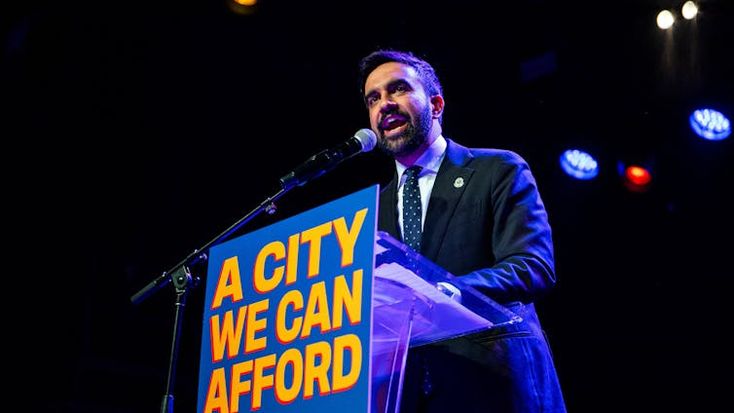
Neil Carter, University of York
This is the first UK general election during which environmental issues are playing a prominent role in the campaign. Numerous scientific reports emphasising the urgent need for action on the climate crisis have helped Extinction Rebellion, David Attenborough, Greta Thunberg and the school climate strikes to grab media attention. Finally, this is reflected in most political parties’ manifestos. And for the first time, most party leaders will go head to head in a televised climate debate.
Concerns about the climate may even shape the way many people cast their vote. Typically, well under 10% of the electorate identify the environment as one of the major issues facing the country. But this election, the figure has soared: today, around a quarter of voters do.
While all the established parties have made climate pledges, it is Labour that has seemingly undergone the most profound transformation through its embrace of a green industrial revolution. This has always been the Green Party’s raison d’etre. But with Labour, a mainstream party, colonising traditional green territory, what is the point of the Green Party now?
Green industrial revolution
Labour’s manifesto certainly reflects the huge shift in party policy since the launch of its new environmental programme a year ago.
A £250 billion “Green Transformation Fund”, partly funded by a windfall tax on the oil (but not gas) industry, will be used to create a million “climate jobs” that will provide renewable and low-carbon energy and transport, and environmental protection. Labour also sets some very ambitious targets: aiming to deliver nearly 90% of electricity and 50% of heat from renewable and low-carbon sources (notably wind, solar and nuclear) by 2030. The party also promises to upgrade “almost all” of the UK’s 27m homes to the highest energy efficiency standards, decreasing demand (and bills).
Significantly, the overarching target to achieve a “substantial majority of our emissions reductions by 2030” does represent a weakening of the controversial autumn party conference commitment to a 2030 net zero carbon emissions target – although it still adheres to the IPCC report stating that most emission cuts need to be made by 2030.
This climb down reflects strong lobbying by trade union leaders, such as Len McCluskey, who argued that 2030 was a completely unrealistic target. This position reflects the view of many experts, not least the independent Climate Change Committee, which identifies 2050 as a more realistic target date.
But the union view does raise some doubts about the genuine commitment of union leaders to climate policies that will require their members to give up their petrol and diesel cars, replace their gas boilers and curb flying.
Union leaders also have wider concerns, expressed in the manifesto, about the need to ensure a just transition of the quarter of a million workers in the oil and gas industries into new green jobs. These are important concerns, which Labour addresses through a set of skills and retraining policies. Overall, the package as a whole and the prominence it is given in the manifesto represents a fundamental step change by Labour.
The greens are greener
Unsurprisingly, the Green manifesto still trumps Labour’s by committing explicitly to a 2030 net zero emissions target and through the sheer scale of its promise to spend £100 billion annually on achieving the zero carbon economy.
Key environmental measures include the introduction of a carbon tax on all fossil fuels; major investment in green industries, including a commitment to a just transition involving the retraining of workers moving from “brown” to “green” jobs; planting 700m trees (Labour commits only to an “ambitious programme of tree planting”) and transforming 50% of farms into agro-forestry funded by a tax on meat and dairy products; retrofitting 10m homes to meet the top A-rating for energy efficiency; and banning single-use plastic packaging. In contrast to Labour, the Greens remain committed to prohibiting the construction of new nuclear power stations – a longstanding Green shibboleth.
Beyond environmental concerns, the two parties make a range of broadly similar commitments including a second referendum on a Brexit deal (with Remain an option), major investments in public services and scrapping university tuition fees. But the Greens also include a radical promise to introduce a universal basic income of £89 per person per week and they support a significant liberalisation of drugs policies.
So where does this leave the Greens? Clearly, the party continues to have a more radical and comprehensive environmental programme, which – because it is in their DNA – it will always prioritise.
But the Greens are also a strong Remain party – and, as I have researched, Brexit is likely to destabilise the UK’s environmental policy.
While the pact with the Liberal Democrats gives the Greens a slim chance of winning an additional seat, Labour’s refusal to agree to a progressive alliance means that in many Labour/Conservative marginal seats, a strong showing for the Greens might have the effect of tipping the balance in favour of the Conservatives.
Ironically, voting Green in these constituencies may allow the Conservatives to secure a majority that will ensure Brexit – and the possibility of a significant dismantling of existing environmental regulations as part of future trade deals negotiated by a Johnson government.
Labour’s new green credentials may help persuade wavering voters to support Corbyn. But as many Green voters are Remainers, they may do so reluctantly. Longer term though, Labour will need to demonstrate a serious and lasting commitment to the green industrial revolution, and the presence of an active and dynamic Green Party will be vital in helping to keep Labour on track.
Neil Carter, Professor in Politics, University of York
This article is republished from The Conversation under a Creative Commons license. Read the original article.




21 Comments
Pingback: หวยแม่โขง
Pingback: sig p320 carry
Pingback: แทงบอลออนไลน์ 3SING Sport
Pingback: Yoga
Pingback: ventilatoare industriale
Pingback: ks quik
Pingback: สล็อตเว็บตรง
Pingback: กระเบื้องยาง SPC ราคา
Pingback: รับทำวิจัย
Pingback: massage in room
Pingback: jaxx download
Pingback: เว็บบอลออนไลน์ ดูบอลสดฟรีทุกลีก ครบทุกแมตช์
Pingback: cam girls
Pingback: sci diyalaa
Pingback: hit789
Pingback: เว็บปั้มไลค์
Pingback: Cat Cat มีบริการอะไรบ้าง?
Pingback: BK168win คาสิโนออนไลน์ต่างประเทศ
Pingback: ข้อดีของการแทงหวยออนไลน์กับ สยาม lotto168
Pingback: hr42
Pingback: https://naasongs.in/smart-ways-to-make-money-online-unlock-your-earning-potential/